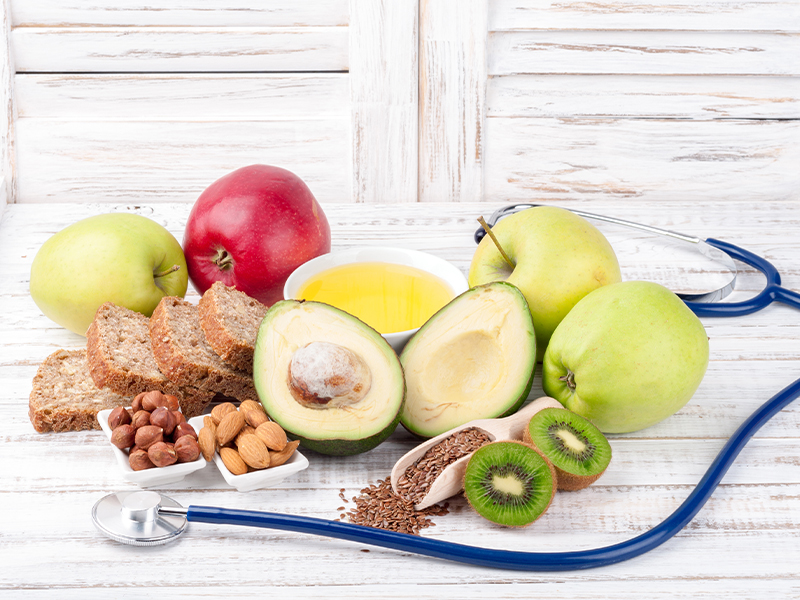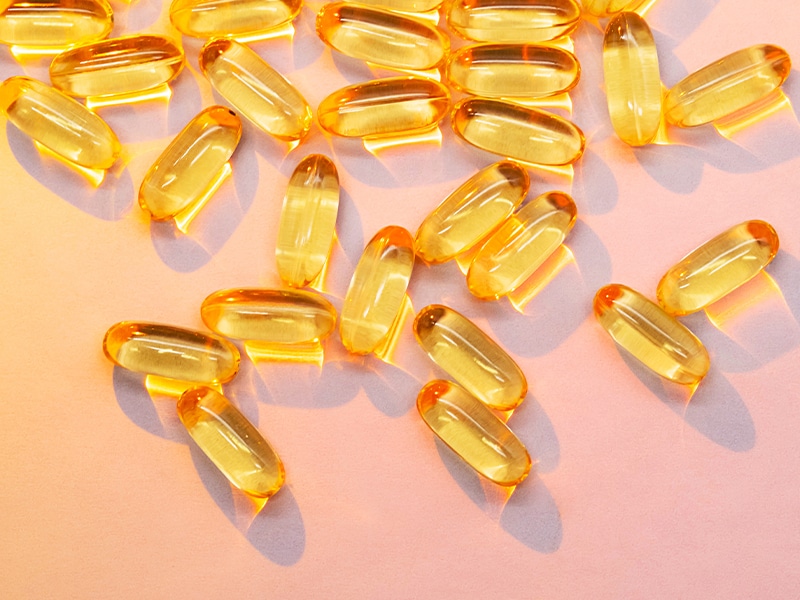Omega Oils: Essential and Non-Essential Nutrients You Must Have
Fatty acids, also referred to as Omega oils, are the building blocks of fats. The body utilizes fatty acids in numerous ways to assist cellular function, metabolism regulation, cardiovascular and heart health, brain function, ` -and more. Fatty acids are vital health components the body relies on to function well.
Fatty acids that are referred to (respectively) as Omegas 3, 5, and 7 are central to supporting multitudes of vital organ functions, organ and other body system routine maintenance, cellular health, cellular membrane activity, cell signaling, transport of biological chemicals across membranes, optimum skin, hair, and nail health, especially hydration, and support of additional processes and functions that contribute largely to overall total body wellness.
The body must have sufficient levels of Omega 3, Omega 5. and Omega 7 in order to function at a healthy level and to perform the necessary organ and system functions at their best. There are fatty acids that the body can synthesize — or can make– from other fats or raw materials on its own. These are called non-essential fatty acids. And there are others the body cannot make for itself that must be obtained from food or supplements. These omegas are referred to as essential fatty acids. Of the fatty acids, essential omegas are the most important. (Omega 3 is an essential fatty acid).
Good Fats, Bad Fats — Fat Facts You Should Know
It’s important to note that all fats are similar in their chemical structure. Each of the four types is a chain of carbon atoms. Their carbon atoms are bonded to hydrogen atoms. The differences between each fat are the number of hydrogen atoms connected to the carbon atoms, and the length and shape of their respective carbon chains. The differences seem to be minimal. However, the slight variation in the chain and position of the carbon and hydrogen bonds and overall structure result in major differences in function and in form.
There are four types of fat that the body breaks down into fatty acids, then utilizes in various ways necessary to keep the body functioning in a healthful way.
They are:
- Saturated fat
- Monounsaturated fat
- Polyunsaturated fat
- Trans Fat
As a general rule, Saturated and Trans fats are thick or solid (think popcorn popped in heavy palm oil, shortening, and margarine) at room temperature. These are the two “bad” fats. Heavy intake can lead to high levels in the body. Too much bad fat is widely known to be unhealthy. Too much of either has been linked to heart disease, stroke, and other serious conditions. Strong supporting evidence shows that a diet with a high percentage of saturated fats and trans fat is more likely to result in cardiovascular diseases than those without and are cause for being mindful about personal health. Managing these bad fats by consuming them in moderation is shown to be less of a risk for various critical, even life-threatening, diseases.
Omegas 3 and 5 are polyunsaturated fats. Omega-7s are monounsaturated fats. Monounsaturated and polyunsaturated fats are considered to be the “good”, healthy fats.These two types of fats are responsible for supporting multitudes of functions, processes, and more that the body relies on to maintain overall total body health and wellness.
What Omegas 3, 5, and 7 Do For You
Omega 3s
Omega-3 fatty acids are essential. The body must get them through diet, supplements, or both. Omega-3 fatty acids help the trillions of cells in the body function optimally. Omega 3s are present in the body’s trillions upon trillions of cells. Cell membranes get their structure from omega 3s nutrients (those classified as lipids).
Just to name a few…More of what Omega 3 Essentials Do
Omega-3 fatty acids:
- Help the trillions of cells in the body function optimally
- Give cell membranes their structure.
- Assist cellular membrane signaling
- Help regulate metabolism
- Aid cell membrane function and chemical transport or exchange
Research shows that omega 3 fatty acids promote the healthy function of nearly every vital organ and the systems they belong to; and they greatly affect heart health and overall total body wellness, including:
Heartbeat regulation, Nerve, Brain, Eye, Skin, Hair, Metabolic Health, and other Cardiovascular function, and promote Immune system health.
Omega 5
Rich in nutrients, Omega 5 fatty acids are non-essential omegas. The body makes its own. These fatty acids support Glutathione and its accompanying antioxidant network. As an additional line of cellular defense, Omega 5 is a complementary defender to help boost cellular health and immune wellness, and to combat environmental invaders like pollution and toxins that make their way into the body from the industrial world around us. These invaders and other free radicals can damage and destroy cells. Too many damaged or destroyed cells results in illness, even death.
More of What Omega 5s do
Omega 5s:
- Help combat free radicals and oxidative stress.
- Are involved in multiple cellular functions and maintenance.
- Assist cellular balance, or homeostasis.
- Help defend against heart disease
- Promote optimum cellular health
Omega 7
Omega 7 fatty acids are the body’s anti-aging allies. They promote the hydration and health of the skin, hair, and nails. Deficiency of Omega 7 has been shown to result in ‘scratchy’, dry skin. Red, itchy rashes can also occur with inadequate levels of Omega 7. Because they promote optimal hydration of skin and of cellular membranes and their routine processes, omega 7 fatty acids should be included in any regime aimed at maintaining an appearance reminiscent of youth.
In addition to their role in managing hydration of skin and membranes, Omega 7 Fatty Acids:
- Help to decrease risk of heart disease.
- Are shown to affect inflammation response.
- Are involved in insulin management and sensitivity.
Nutritional Supplementation
Deficiencies in Omegas 3, 5, and 7 are shown to diminish the healthy function of our most vital organs and systems. Multitudes of diseases and illnesses have been shown to be associated with inadequate levels of these crucial building blocks. For many people worldwide, it’s likely that nutrition and diet alone do not provide the levels necessary to maintain optimum health.
Max357 is a formula of not just one of the mega omegas, but of three of the body’s most needed fatty acids. Our blend of 3, 5, and 7 omegas is uniquely formulated and responsibly sourced from the eco-friendly fish habitat of the pristine Norway coast waters. The manufacturing process from sea to supplement is completed efficiently, start to finish, within hours of procurement to preserve the exceptional quality, freshness, and integrity of the Cod oil omegas.
Max357™ is the ultimate health and wellness supplement. When it comes to choosing premium-quality omegas, choose only the very best. Choose Max357 – Max’s value-rich, exceptional blend of the world’s finest Omega oils. Max357 delivers the quality and product integrity Max is known for.
Live to the Max.
Max357: Premium Nutrition for the Vital Systems Your Life Depends On.
Experience exceptional Omegas. Prioritize your best health.
Invest in Max357
















